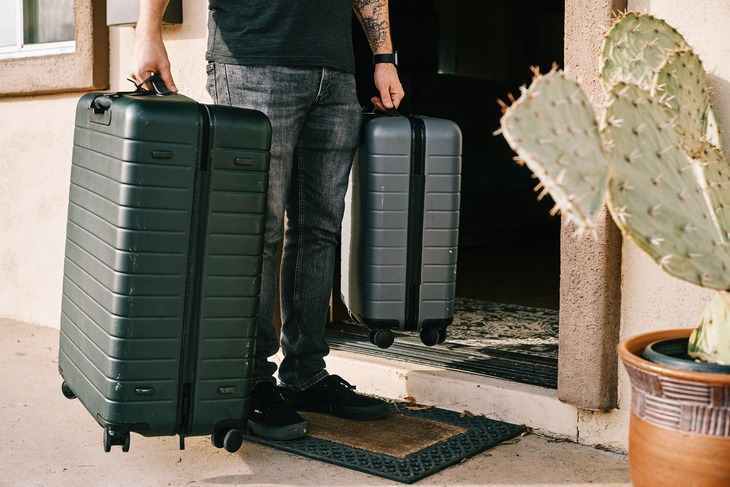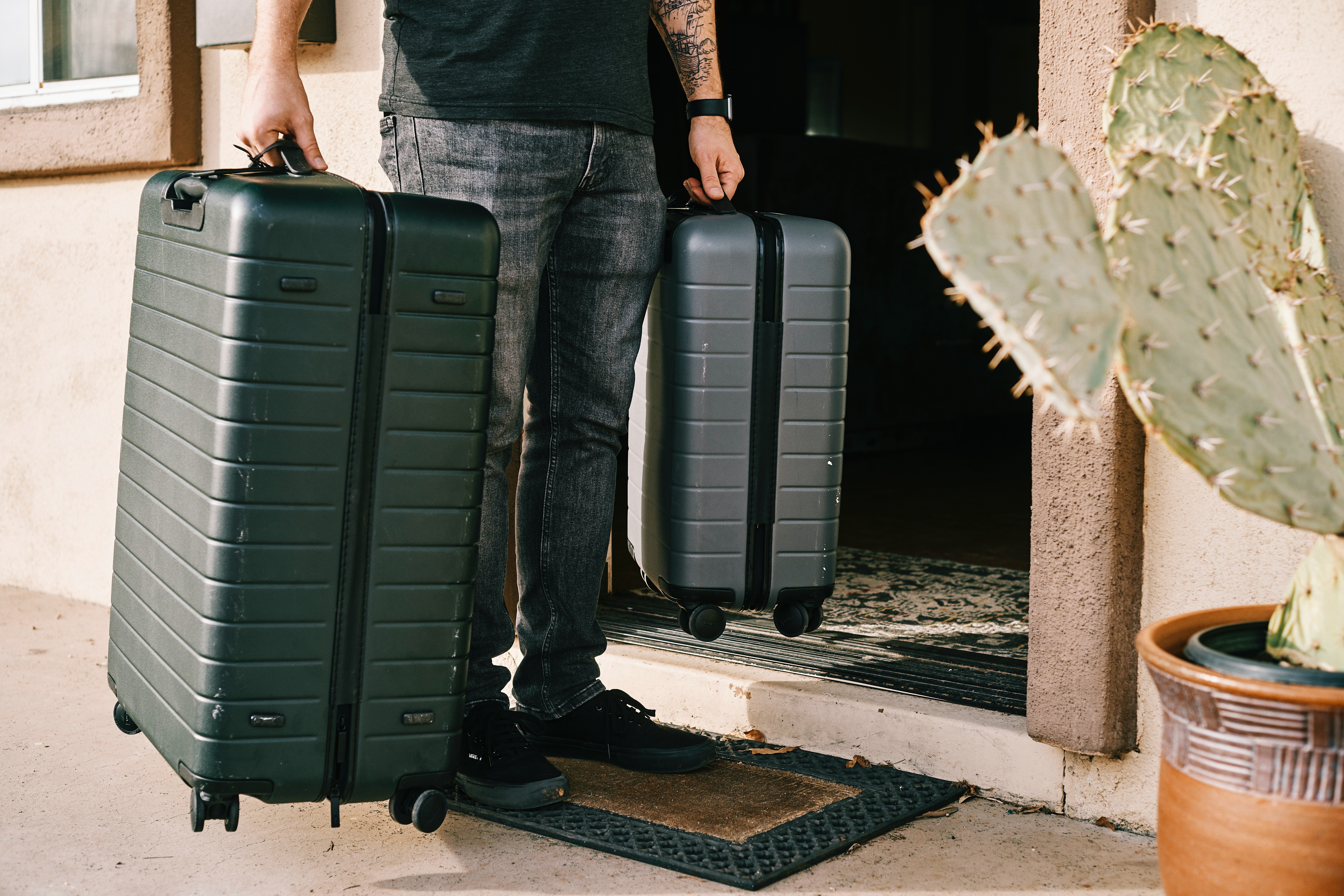Moving to Japan? All About Getting a Visa and Making the Move
Finally committing to making the move to Japan is an exciting, wonderful moment. But once you're officially set to come here, how do you start to prepare? Picking up your whole life and moving to a new country is a challenge no matter where you move to, and if you're coming from across the world to move to Japan, it can be hard to truly understand the amount of work that may go into the move itself.
While that move date may still be months away, starting to prepare now will help make moving to Japan as painless as possible for you. So let's take a look at how to prepare for your move to Japan, how to choose a moving company if you need one, and talk about things you should absolutely do once you arrive so that your new life can get off to a smooth start.
Getting Your Visa
To move to Japan, you'll need a visa. There are a range of different visas available, and which one you travel to the country with will depend on if you are coming to study, work, or family situation. Let's briefly touch on the kinds of visas available, as well as what you need to do to apply for them.
Kinds of Visas
Here are some of the most common kinds of visas offered by Japan. Each visa has different restrictions on it.
・Work Visa: Offered to people employed by Japanese companies. There are various subcategories of this kind of visa, and which kind of work visa you apply for and receive will depend on the company you work for and the kind of work you will do in Japan. Note that since the subcategories are specific to the kind of work you do, you may need to apply for a different kind of work visa if you change jobs. If you are hired by a Japanese company, they should guide you on which kind of work visa to apply for.
・Student Visa: These are offered to individuals enrolled in Japanese universities, language schools, or other vocational institutes. To receive a student visa, you'll need proof of enrollment from your school. Note that there are strict rules on student visa holders when it comes to work -- while you may be able to have a part-time job, the number of hours you work per month is limited.
・Dependent Visa: This visa is for family members of individuals living in Japan under work or student visas. The primary visa holder (be it a work or student visa) will need to be able to financially support their family on dependent visas.
・Spouse or Child of Japanese National Visa: You can receive this visa if you are married to or the child of a Japanese national. This visa has the least restrictions on it, meaning you can work, study, or live in Japan long-term fairly freely as long as the visa is valid.
・Highly Skilled Professional Visa: A special visa granted to highly skilled foreign workers based on qualifying through a point-based evaluation system. This visa offers advantages such as a fast track to permanent residency.
There are other categories of visas as well, such as those for artists, entrepreneurs, researchers, and so on. Every kind of visa has a different kind of application process, so let's briefly look at that now.
Applying for a Visa
Most visa applicants need to obtain a Certificate of Eligibility (COE) before applying for a visa at a Japanese embassy or consulate. The COE serves as a pre-approval from Japan's Immigration Bureau, verifying that the applicant meets the visa requirements. A COE is necessary for work, student, dependent, spouse, and highly skilled professional visas. Note that if you are already living in Japan on a visa, and are trying to change to a different kind, a COE may not be necessary.
You usually cannot submit an application for a COE on your own; instead, a sponsor can do it in Japan on your behalf. This could be your employer, school, or family member. You'll usually need to provide them with:
・A completed COE application form
・A passport copy
・A recent ID photo (4cm × 3cm)
Specific visas have other requirements for COEs, such as employment contracts for work visas, admission certificates for student visas, and marriage certificates or proof of family relationship for dependent or spouse visas.
All of this is a lot to take in and prepare for, so if you are seriously planning to move to Japan, do the necessary research and talk with your school, employer, or family to make all the necessary applications. If you do not know where to start, hiring an immigration lawyer may also be an option.
Preparing for Your Move
If possible, try to get all of your visa applications and preparations done well before you get too busy packing and planning the move. That being said, leaving packing and making arrangements for your move to Japan until a few weeks before leaving will just end up causing you a world of trouble. Planning out what you need to do and when you need to do it will help you avoid any last-minute panic. Here's a basic timeline you can follow so that you aren't rushing to finish your preparations with only one week left before moving to Japan.
As Early as Possible:
If you can, start learning Japanese as soon as you know you are going to move to Japan. This will make your move and living in the country so much easier. If you want to take lessons, Tokyo Apartment Inc. offers Japanese lessons catering to the specific skills you'll need.
90 Days Before Your Move:
Depending on how you are going about moving to Japan, you may need to hire a moving company to help with your international move. You'll want to start researching moving companies early and get quotes to find an option within your budget. This is especially important if you are planning on bringing any large items to Japan, such as furniture.
If you're moving to Japan during a busy time of the year (in Japan this is usually around the end of the year or spring), you may end up in a situation where all the moving companies are already booked. That's why you should start the research process as soon as possible, especially if you are going to be bringing a lot of stuff with you to Japan.
50-60 Days Before Your Move:
You should already be starting packing at this point. If you are planning to bring a lot with you to Japan, consider shipping some of it well in advance of your move. If you are going to do this, make sure that you understand all the rules about customs, duties, and taxes so that you don't send anything you shouldn't or otherwise get in trouble with customs. You can learn more about Japanese customs here.
Of course, if you're only planning to move to Japan with a couple of suitcases worth of clothes and goods, then you don't need to do this.
30-40 Days Before Your Move:
If you haven't already, you should start taking care of any last-minute administrative business where you currently live. Inform your landlord of your move, and cancel any utilities or other bills so that they don't keep charging you after you've left the country.
One Week Before Your Move:
If there's any final cleaning or other move-out procedures you need to do for your current apartment, be sure to check with your landlord and take care of that now. If you're working for a company in Japan, now is also a great time to buy some snacks to bring to your workplace to make a good first impression on your new coworkers. Famous local snacks or delicacies from where you live are always a great choice. Also, take time to figure out how to get from the airport to wherever you need to go first in Japan, be it your new apartment or workplace.
Another good idea is to learn any emergency contact numbers you may need in Japan. That way, if something goes wrong, you'll be able to find support. Here are some numbers worth knowing.
・Police - 110
・Fire Department & Ambulance - 119
・Japan Helpline - 0570-000-911: This is a 24-hour, English-speaking support line for non-Japanese residents and visitors in need of assistance. Call them if you need help navigating Japanese emergency services, legal support, or general advice related to living in Japan.
・Tokyo English Lifeline (TELL) - 03-5774-0992: This is a confidential support line for mental health and emotional support in English. Moving to a new country can be hard, so if you feel overwhelmed, consider giving them a call.
・Embassy or Consulate of Your Country: You never know when you may need to call your embassy. This is especially important if you lose your passport or have any legal issues while you are in Japan.
Choosing a Moving Company (If You Need One)
If you're truly moving your whole life to Japan, then your best option may be to hire an international moving company to help you make the move. This can be especially important if your move to Japan is permanent or you have a family you are moving with.
There are so many different moving companies out there, so choosing the right one for you can seem overwhelming. So let's look at things you should consider when choosing a moving company to help you move to Japan.
If you don't have any need for a moving company, feel free to skip ahead to the next section!
・Do They Offer Foreign Language Support?
If the moving company can't communicate well in Japanese and your language, the whole moving process could be much more difficult. Be sure to confirm that the company can communicate in the same language as you.
・Do They Have Experience Moving People to Japan?
Be sure to choose an international moving company that has experience helping people move to Japan. If they don't, it could mean that they won't know how to handle any unexpected Japan-specific problems that may arise. It also means they may not be able to answer a lot of questions you have or give you accurate information that you need to know about moving to Japan.
・How Much Support Do They Offer?
Different international moving companies have different plans and levels of support that they can offer you. Before you sign any contracts, make sure that you clearly understand the specifics of what the company will do for you before, during, and after the whole moving process. Will they take care of all the paperwork at customs? Will they help you unpack large or small items once you arrive in Japan? These kinds of support can help make your move much less of a headache, so try to choose a company that will take care of a lot of this for you if you can.
What to Do Once You Arrive
Congratulations! You've made it to Japan and hopefully, all of your stuff arrived with you in one piece. Now's the time to look over all the items you shipped over or brought with you and make sure nothing is damaged. But before you start settling into your new life, here are some other things you should try to do as soon as possible to make your new life in Japan easier.
・Register at City Hall
When you first move to Japan, and any time you move after that, you need to notify your local ward office or city hall of your new address within fourteen days of moving. You should try to do this as soon as you have the time so that you don't get into any trouble later on.
When you go to the city hall or ward office, make sure to bring your new Residence Card you got at the airport, your passport (you may not need this but it is worth bringing just in case), your new address, and a phone number. If you don't have a phone number yet in Japan, you can possibly use your home country's number, the phone number of a coworker, or your company's number.
・Register for Health Insurance
If you moved to Japan to work full-time for a company, then they will most likely take care of registering you as part of their health insurance and you won't need to do anything. But if that is not the case, you should register for Japan's National Health Insurance while you are visiting the city hall to register your new address. In Japan, you must be covered by health insurance, whether it is through your company or the government.
You can learn more about the different kinds of health insurance in Japan here.
・Open a Bank Account
Try to open a Japanese bank account as soon as you can. You'll be able to have your salary deposited directly to the account, and utility bills can often be paid by direct withdrawal. If you are working for a Japanese company, they may take you to a bank to help you open an account, since the process can be complicated if you don't speak Japanese or there are no English-speaking staff at the bank.
Things to Know About Japanese Moving Culture
Japan has some unique traditions surrounding moving into a new apartment or home that are worth knowing if you want to make a good impression on your new neighbors. You never know when you may need your neighbor's help, so let's look at some of these moving traditions.
・Greeting Your New Neighbors with a Small Gift
While not everyone does this anymore, traditionally it is customary to give a small gift to your neighbors when you first move in. If you are living in an apartment, you would be expected to greet the people on either side of your apartment, your neighbors in the units directly above and below yours, and your landlord. You never know when you might need a neighbor's help, so it's a good idea to connect with them and make a good first impression if you can.
But what should you give your new neighbors? Traditionally soba noodles used to be the most common gift, but this practice has largely been replaced by giving small useful household items like dish towels or even laundry detergent. Snacks would also be a fine choice. You don't need to spend a lot; 500-1000¥ per gift per household is more than enough.
・Joining the Community or Neighborhood Association
Your apartment building or local neighborhood will likely have a Community or Neighborhood Association run by your neighbors. The basic idea is that these neighborhood associations perform various duties to keep the apartment building or neighborhood clean and safe. This may include cleaning garbage disposal areas, fundraising for maintenance, hosting local festivals, and so on, but it depends entirely on the neighborhood association.
Joining the neighborhood association is usually optional, but if you do choose to join you will likely need to pay a small monthly or yearly fee. It may not be a bad idea to join the local association as a way to connect with your new neighbors and become a closer part of the community.



























